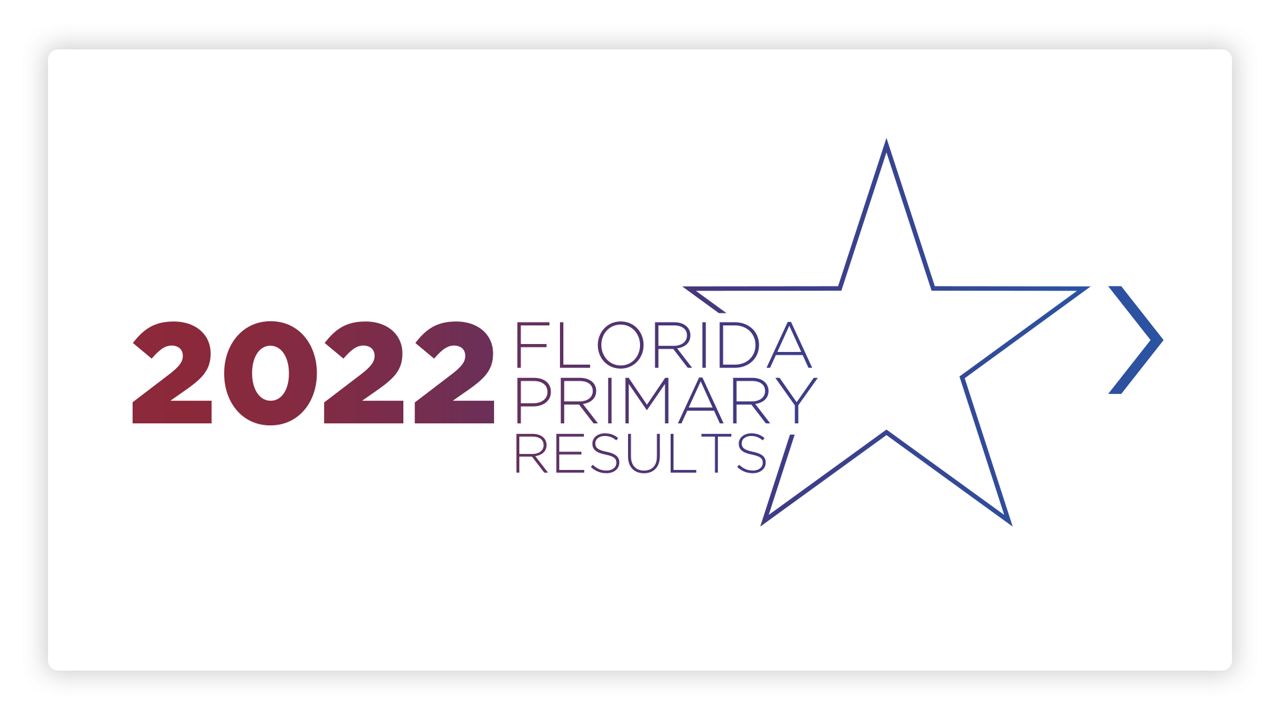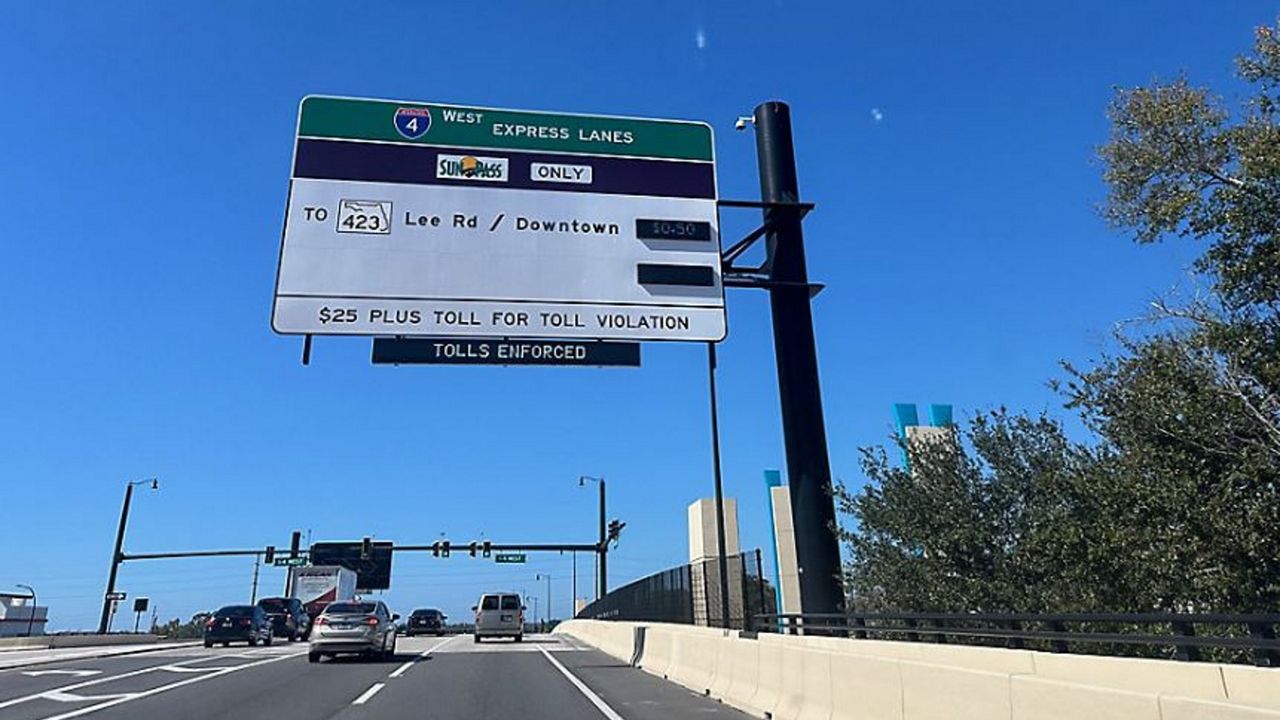Florida Congressman and former Republican Gov. Charlie Crist officially won the Democratic nomination in the race for governor of Florida late Tuesday.
Decision 2022
- LIVE ELECTION RESULTS
- Was your mail ballot counted?
- What happens if you voted on a provisional ballot?
- Download the Spectrum News app for the most in-depth Decision 2022 experience
- Podcasts
"When we defeat him on Nov. 8, this (DeSantis) show is over. I no longer know the representatives of the Republican party. They're extremists," Crist said in his victory speech. "This is the most consequential election in the history of our state."
He continued, "This governor couldn’t care less about your freedom. He’s abusive. He is a bully, and he is dangerous. He imitates the worst authoritarian leaders on the globe ... He only cares about the White House. He doesn’t care about your house.”
Earlier in the day, before officially defeating Florida Agriculture Commissioner Nikki Fried, he was already looking ahead to the general election.
“A good chunk of independent voters, and I think we will get some crossover Republicans that are dissatisfied with Governor DeSantiis and his bullying. He is tearing Florida apart. Florida is a beautiful place, and we need to bring her back together and to put her back together for the betterment of all people,” he said.
He defeated Fried, earning more than 60% of the vote. The win came despite recent polling in the race that showed Fried leading in the final stretch. A poll of registered Democrats showed 47% supporting Fried to face DeSantis in November and just 43% backing Crist.
Professor of Political Science at University of North Florida Dr. Michael Binder attributed Fried’s success in the poll to the recent Supreme Court decision that effectively overturned Roe V. Wade, as well as Planned Parenthood V. Casey.
“Fried seems to have reversed the eight-point lead that Crist had when we asked registered Democrats about vote choice in February,” Binder said when the poll was published. “It’s possible that the overturning of Roe v. Wade changed the make-up of this race, and has particularly energized women that are almost 20 points more likely to vote for her.”
The race echoed many of the challenges that Florida faces statewide. Republican and Democrats alike agree the candidates’ plans for addressing affordability issues is the most important consideration in deciding who will claim the governor’s desk in November. For Democrats, the second most important issue was reproductive rights.
The cost of housing — both renting and purchasing — remains a major point of financial stress among many Floridians, especially those in the widely influential “I-4 Corridor,” that usually tips the scales in close races.
On abortion, Fried was quick to go on the offensive, questioning Crist’s authenticity on the issue following Florida’s passage of a post-15-week ban and the Supreme Court’s Roe reversal.
Crist often repeated the same retort.
“I’m the only candidate in this race as a governor of Florida who vetoed an anti-abortion bill,” he told Spectrum News outside of a diner in Hollywood last week, speaking about his tenure as governor between 2007-2011. “I’ve got a 100% rating with almost six years in Congress by Planned Parenthood and NARAL.”
Crist also campaigned against Democrats’ true target in November, current Governor Ron DeSantis. During an extended discussion with Spectrum News, he launched a few soundbites at the incumbent.
“We have a governor that’s more focused on the White House than your house. It’s alright to have ambition, I have it, but not blind ambition, and I think he’s taking the eye off the ball, and not being concerned about the price of gas, the price of housing in our country. We’ve been rated the most expensive state to live in the country,” Crist said in early August.
Fried also pinned current economic hardships on the sitting governor.
“No matter where I am, in South Florida, Central Florida everybody is having an issue, whether it’s paying their rent, whether it’s paying their mortgage insurance, property taxes, and so what we have seen is that during Gov. DeSantis’ administration, our mortgages are higher, our property taxes are higher, our gas is higher, and our inflation rate is higher than the national average.”
Crist will go on to challenge Gov. Ron DeSantis in November, and he is likely to be a formidable opponent. According to recent polling, nearly 54% of all registered voters approve of the job he is doing as governor. But perhaps more importantly, 52% of voters who aren’t registered with either party have a positive view of DeSantis.
On the cash side of the campaign, DeSantis has raised $165.6 million for his reelection since 2019. That’s substantial, especially since DeSantis raised nearly $59 million for his successful, but narrow, 2018 win over Andrew Gillum.
Comparatively, Crist raised $2.3 million in July that included campaign matching dollars from the state of Florida, according to our partner, Florida Politics. It’s important to note that after the primary, it’s likely those numbers will increase as he gains access to party funds and resources, but it’s still an important difference that could restrict early campaign efforts.
DeSantis spoke in Miami a few minutes after Crist was named the winner.
He spoke of what he called the “the woke gender ideology” culture and said children are being taught to “hate each other and to hate our country.”
“As long as I’m governor, the state is going to be standing with the parents of this state,” he said to applause.
The governor, who predicted the largest Republican turnout in state history will happen in November, also defended his response to the COVID pandemic.
“We made sure to protect people’s freedoms, their jobs, and their children’s education,” he said.
DeSantis has become a nationwide lightning rod over his signing of controversial “anti-woke” laws. The “Stop WOKE Act,” which aims to ensure issues like Critical Race Theory weren’t taught in state classrooms. The “Parental Rights in Education Act” prohibits the discussion of LGBTQ+-related materials before third grade and limits conversations at all grade levels. It also created provisions for parents to have a bigger say in deciding what books and materials are available at schools and libraries.
Charlie Crist opposed both laws but focused his campaign platform more on staffing classrooms than addressing their lesson plans. He promises to “declare a teacher shortage emergency” and raise salaries.









